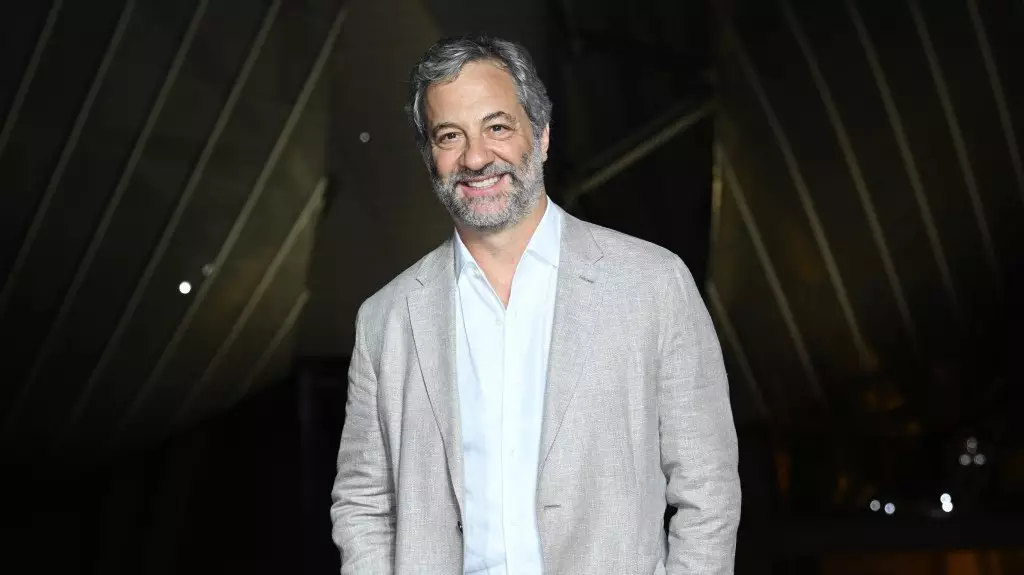Judd Apatow, a prominent figure in comedy and filmmaking, has recently expressed concern over the evolution of the entertainment industry, particularly the trend toward an increasingly intense and sensationalist approach to storytelling. In a candid discussion on the **Superfly** podcast with Dana Carvey and David Spade, Apatow articulated his belief that contemporary filmmaking prioritizes spectacle over substance, which ultimately sacrifices nuanced narratives that once thrived in cinema. This observation raises critical questions about the direction in which Hollywood is heading and what it means for audiences expecting more than just excitement and thrills from their viewing experiences.
Apatow’s commentary draws a parallel between the entertainment industry and the newspaper business, coining the phrase “If it bleeds, it leads” to encapsulate the current obsession with high-stakes, dramatic content. He argues that today’s streaming platforms are dominated by extreme narratives, whether they feature megastars or delve into darker themes like crime and psychological horror. In doing so, storytelling often veers into the territory of the grotesque or hypersexualized, neglecting the subtleties and complexities that make narratives relatable. This trend, where everything must evoke a strong emotional response, has pushed aside character-driven stories that offer warmth or humor.
Apatow points to the detrimental effects of an audience’s completion rate obsession, in which streaming services focus excessively on viewer retention metrics rather than the quality of the storytelling. This is exemplified in the HBO show **Barry**, where the character Sally’s show is abruptly ended due to algorithmic pressures. Such a model suggests that creators are held captive by the demands of analytics rather than artistic merit. Consequently, the fear of losing viewership has stifled creativity, making it difficult for subtle narrative arcs to find their place in modern entertainment. With producers feeling pressured to keep audiences engaged, there is less room for quieter scenes that encourage introspection, humor, or emotional depth.
Carvey adds to Apatow’s critique by highlighting the prevalence of “hypersexual” content in popular shows, exemplified by Nicole Kidman’s rich catalog of prestige projects that blur the lines of eroticism and thriller. While Grabbing attention can be beneficial, it raises concerns about the depth of character development in favor of sensational content. Apatow’s reflection on this trend suggests a cyclical pattern: as audiences swipe through endless options, filmmakers may feel compelled to create more overtly engaging material to stand out in an oversaturated market, leading to a dilution of quality storytelling.
As discussions about the future of cinema unfold, it becomes essential for creators, audiences, and industry stakeholders to find a balance between engagement and artistic integrity. While the demand for intense narratives may dominate today’s landscape, it is crucial to remember the role of diverse storytelling that encompasses all human experiences. Apatow’s critical perspective serves as an invitation for filmmakers to explore the quieter, subtler stories that once captivated viewers, ensuring that the essence of storytelling is not lost in a sea of algorithms and sensationalism. During times of rapid change and evolving tastes, it is vital to reflect on what truly resonates with audiences and to advocate for the preservation of rich, nuanced narratives within the entertainment ecosystem.

